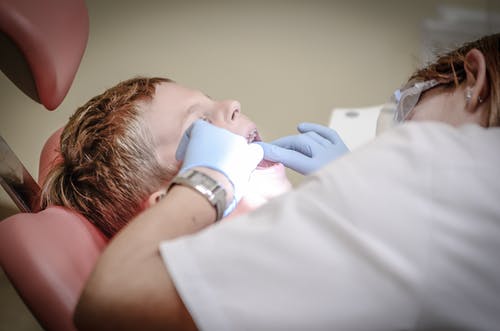Maintaining good oral health is more than just keeping a bright smile; it is an essential part of overall health. Preventive dentistry plays a pivotal role in maintaining good health throughout the body. Regular dental checkups, proper hygiene, and informed lifestyle choices can lead to significant health benefits beyond the mouth.
Preventive Dentistry
Preventive dentistry involves caring for one’s teeth to keep them healthy and prevent the development of cavities, gum disease, enamel wear, and more. This branch of dental care aims at avoiding the onset of oral health issues rather than treating them after they occur.
-
Daily brushing and flossing
-
Regular dental check-ups
-
A balanced diet
-
Dental sealants and fluoride treatments when necessary.
Implementing these practices helps individuals preserve their oral health and contributes significantly to overall wellness.
Oral Health and Its Connection to Systemic Health
Good oral health is deeply intertwined with the body’s overall condition. Studies have linked periodontal disease to a host of illnesses, including heart disease, diabetes, and stroke. The mouth serves as a gateway to the rest of the body, making an infection or inflammation in the oral cavity a possible starting point for systemic issues.
-
Bacteria from infected gums can enter the bloodstream, potentially affecting the cardiovascular system.
-
Inflammation caused by periodontitis may stimulate atherosclerosis, leading to heart disease.
-
Gum disease can influence the control of blood sugar, exacerbating conditions like diabetes.
Attending to oral health can help curb the risk of these and other ailments, underscoring the relationship between preventive dentistry and general health.
The Physical and Psychological Benefits of Preventive Dentistry
Maintaining optimal oral health through preventive dentistry lays the groundwork for substantial physical and mental benefits. Physically, a healthy mouth free of infections helps to safeguard the body against inflammatory responses linked to various diseases. Psychologically, knowing your smile is healthy can boost confidence, reduce stress, and contribute positively to overall well-being.
Regain your smile with dentures through preventive measures, as these can also help individuals who have already experienced significant tooth loss to restore their function and appearance, leading to improved quality of life and health outcomes.
Dietary Choices in Preventive Dentistry
The food we consume plays a major role in oral health. Diets high in sugars and starches contribute to plaque formation and tooth decay. On the flip side, a diet rich in calcium, phosphorus, and vitamins can protect tooth enamel and promote oral health.
-
Consuming fibrous vegetables and fruits stimulates saliva flow, which is a natural defense against cavities.
-
Avoiding frequent snacking, particularly on sugary treats, helps to minimize the risk of tooth decay.
-
Staying hydrated, especially with water, aids in maintaining a healthy oral environment.
Proper nutritional choices complement preventive dental care, reducing the need for corrective procedures and promoting a healthier dental state.
Preventative Dental Practices and Technologies
Advancements in preventative dental technologies have made it easier for dental care professionals to spot and treat potential problems early. Digital X-rays, laser dentistry, and advanced screening procedures are helping detect issues before they escalate, increasing the effectiveness of preventive care.
Preventive Dentistry for Different Life Stages
Preventive dentistry is crucial for all age groups, from infants to the elderly. Childhood is the prime time for instilling good dental hygiene habits and recognizing malocclusions early. Adults benefit from preventive dentistry by maintaining their natural teeth and aesthetics, while older patients require specialized care to manage age-related dental issues.
-
Dental sealants and fluoride applications for children are utilized to protect against decay.
-
Addressing potential issues of tooth erosion and gum recession in adults. –
-
Caring for the unique needs of seniors’ oral health, which may include dealing with dry mouth and maintenance of dental prosthetics.
Finding the Right Dental Professionals for Preventive Care
Seeking knowledgeable dental professionals plays a vital role in effective preventative dentistry. A good dental team will not only provide necessary treatments but will also educate patients on maintaining oral health, offer dietary advice, and suggest lifestyle changes to support good dental habits.
A visit to a dental clinic in Oakville, for instance, could offer an opportunity for patients to learn about the latest in preventative dental care techniques and how they relate to overall well-being.
Investing in Your Health with Preventive Dentistry
Investing time and resources into preventive dentistry yields long-term dividends for your overall health. By detecting issues early, minimizing risky behaviors, and committing to regular check-ups, patients can set the stage for a healthier life.
Porcelain dental veneers at Shore Side Dentistry, for example, represent a restorative option that, when part of a preventive approach, can help ensure that the underlying teeth remain healthy and protected against future issues.
Wrapping Up
The journey towards overall health is greatly supported by preventive dentistry. By understanding and implementing the key tenets of this vital healthcare discipline, individuals can enjoy a healthier lifestyle. Regular dental care, proper nutrition, and up-to-date dental technologies are the cornerstones of a preventive approach that benefits not only your oral health but also your entire body. Make preventive dentistry a priority in your life and reap the rewards of a healthier, happier you.





